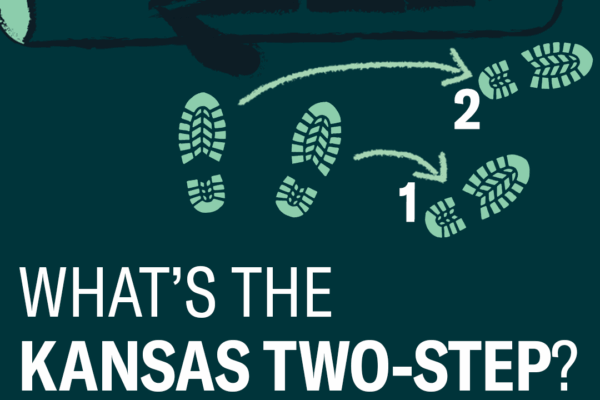This Know Your Rights Q+A was created by the ACLU to help individuals understand their rights in response to police searches and arrests. The guidance below includes Kansas-specific law in order to help Kansans better understand their rights and to serve as a specific reference guide in the event of a police encounter in our state.
Q: Do I have to answer questions asked by law enforcement officers?
- No, you have the constitutional right to remain silent.
- In general, you do not have to talk to law enforcement officers (or anyone else), even if you do not feel free to walk away from the officer, you are arrested, or you are in jail.
- You cannot be punished for refusing to answer a question.
- It is a good idea to talk to a lawyer before agreeing to answer questions.
- In Kansas, you have to unambiguously invoke your right to remain silent. Do not continue the conversation or allow an officer to engage you on a different topic, otherwise they will be able to use what you say even though you had asked to remain silent.1
Q: Are there any exceptions to the general rule that I do not have to answer questions?
- Under Kansas law if an officer stops and asks you to identify yourself, you may be required to identify yourself.2
- If an officer asks for your identifying information, confirm with the officer first that you are being required to provide that information.
Q: What if I speak to law enforcement officers anyway?
- Anything you say to a law enforcement officer can be used against you and others.
- Keep in mind that lying to a government official is a crime but remaining silent until you consult with a lawyer is not.
- Even if you have already answered some questions, you can refuse to answer other questions until you have a lawyer.
Q: What if law enforcement officers stop me on the street?
- Stay Calm. Don't run. Don't argue, resist or obstruct the officer even if you are innocent or your rights are being violated. Keep your hands where the officer can see them.
- Ask if you are free to leave. If the officer says yes, calmly and silently walk away. If you are under arrest, you have a right to know why.
- You do not have to consent to a search of yourself or your belongings, and officers should inform you of your right not to consent.3 For the avoidance of doubt, always clarify whether you are able to refuse a search.
- An officer may "pat down" your clothing if they suspect you are armed and dangerous, such as in possession of a weapon or unlawful object.4 You should not physically resist, but you have the right to refuse consent for any further search.
Q: What if law enforcement officers stop me in my car?
- Stop the car in a safe place as quickly as possible. Turn off the car, turn on the internal light, open the window part way and place your hands on the wheel.
- Upon request, show your driver's license, registration, and proof of insurance.
- If an officer asks to look inside your car, you can refuse to consent to the search. But if an officer believes your car contains evidence, your car can be searched without your consent.5 In Kansas, however, the general odor of alcohol alone is not justification to search a vehicle.6
- Both drivers and passengers have the right to remain silent. If you are a passenger, you can ask if you are free to leave. This makes clear to the officer that your continued presence is non-consensual if they instruct you to stay.7
- Generally, the police cannot keep you pulled over for longer than it takes to address the reason for the traffic stop. Once the traffic stop is over, you do not need to keep speaking with the police. If they try to continue talking with you, you do not have to answer any questions and should be free to leave. You may simply say that you do not want to talk any further and ask if you are free to go.
Q: Can law enforcement officers search my home?
- Law enforcement officers can generally search your home only if they have a warrant or your consent.
- A search warrant allows an officer to enter the address listed on the warrant, but officers can only search for the item listed in the location listed.
- An arrest warrant allows an officer to enter the home of the person listed on the warrant if they believe the person is inside.
- If an officer comes to your home, ask them to slip the warrant under the door or hold it up to the window so you can inspect it and confirm that it has your information on it and is signed by a judge. In Kansas, warrants must be used within ten (10) days (240 hours) from execution.8
- Except in emergency situations, officers are required to knock and announce themselves prior to acting on a warrant.9
- In your absence, the police can search your home based on the consent of your roommate or a guest if the police reasonably believe that person has the authority to consent.10
- Importantly, in Kansas if you are on parole, law enforcement is also entitled to search your home without a search warrant or your consent.11
- Even if the officers have a warrant, you have the right to remain silent. If you choose to speak to the officers, step outside and close the door.
Q: What if I am arrested?
- Do not resist arrest, even if you believe the arrest is unfair.
- Say you wish to remain silent and ask for a lawyer immediately. Don't give any explanations or excuses. If you can't afford a lawyer, one will be provided.
Q: What do I do if I have been the victim of racial profiling?
- Get the officer’s badge number.
- Keep copies of any paperwork related to your stop, search, or arrest.
- File a report with the law enforcement agency or the Kansas Attorney General’s Office: https://www.ag.ks.gov/public-safety/racial-and-bias-based-policing
Q: What if the officer claims to detect an illegal substance?
- In Kansas, the general odor of alcohol alone is not justification to search a vehicle.
- The odor of marijuana does provide sufficient probable cause for an officer to search your vehicle.12
1 State v. Scott, 183 P.3d 801, 816-17 (Kan. 2008).
3 State v. Hubbard, 309 Kan. 22 (2018). (But see from State v. McDonald citing Ellis, 311 Kan. at 929-30, “We have previously said "[d]espite repeated admonitions to the State that police may not use public welfare checks as a basis for conducting background investigations and warrant checks . . . such conduct persists." Ellis, 311 Kan. at 942; see also State v. Gonzales, 36 Kan. App. 2d 446, 453, 141 P.3d 501 (2006) ("Once safety stops are permitted, then there must be limits placed upon them; otherwise, any pretext could serve as a reason to stop."). A valid public-safety stop therefore requires an officer to believe such a stop is necessary to protect the individual or the public based on the specific and articulable facts of the particular situation.”
4 State v. Daley, No. 109,036, 2014 WL 1096631, at *5 (Kan. Ct. App. Mar. 14, 2014)
5 State v. Overman, 348 P.3d 516, 522 (Kan. 2015).
6 State v. Stevenson, 321 P.3d 754, 763 (Kan. 2014).
7 State v. Murphy, 293 P.3d 703, 705 (Kan. 2013).
9 United States v. Esser, 451 F.3d 1109, 1112 (10th Cir. 2006).
Related Content

Shaw v. Jones
Stay Informed
Sign up to be the first to hear about how to take action.
By completing this form, I agree to receive occasional emails per the terms of the ACLU’s privacy statement.
By completing this form, I agree to receive occasional emails per the terms of the ACLU’s privacy statement.


